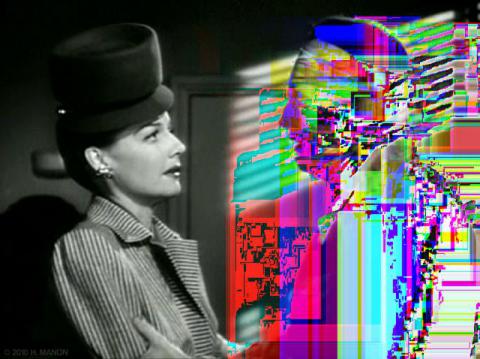A few weeks ago, Rogelio and I attended an intriguingly titled talk, “What would W.E.B. Du Bois say about inequality in digital societies?” It was part of a lecture series probing inequality and exclusion in a digital economy. Rogelio has a full write-up of the event here.
The lecturer, Dr. Ernest J. Wilson III, noted that the digital divide is still very real, but its meaning has shifted. The argument for closing the digital divide always had an economic component: Computer access and basic literacy skills would enable people to build resumes and navigate professional networking sites. Now, Wilson argued, it means that those without digital skills will be left behind as the Western world moves toward a digital service economy.

The kind of digital skills that Wilson was most focused on? You’ve encountered them, or at least you’ve heard of some businesses that address digital skills: Codecademy, Lynda.com, Code School, Girl Develop It… One of my colleagues from CUNY’s Tow-Knight fellowship founded Skillcrush to provide programming education to women. Wilson accepts that in recent times, the economic models are mobile apps, web platforms and other results of programming.
Note: In this post, you can react to any part of the post by highlighting the text and clicking “React To This.” I would love to see your comments and further reading suggestions. Thanks ReadrBoard!
I’ve done some very early browsing around my thesis topic: how alternative narratives of work move into and become dominant in mainstream consciousness. Across publishing dates, much of the literature underscores the obvious: Technological advancements and mechanization displaces human labor. But what aren’t we focusing enough on?
Toward the end of Wilson’s talk, one attendee placed it in a general participation context. The following is my summary of his comment:
Improvements in technology continue to displace workers. Platforms such as AirBnB are creating new ways of earning income while also disrupting older industries, but it’s also affecting African Americans who often do work that is the first to be replaced. AirBnB might be doing revolutionary things, but it doesn’t replace the sort of job/job benefits that are lost.
One of my professors likes to say that before a new medium comes into its own, people try to replicate what they’re used to from older media. It’s clear in how we used to talk about the digital divide—getting people access to job listings online, replicating the paper resume in digital form. Now, we talk about how essential it is to develop programming skills or to be literate in peer economy networks like AirBnB.
There have always been groups that try to close the gap between the first movers and those on the other side of the divide. While in Grand Rapids, I visited with Home Repair Services, an organization that teams up with low-income families to sustain home ownership and keep up with repairs (house inefficiencies are a huge money suck). Demand for their services went up dramatically after the housing crisis. I visited often with The Literacy Center, which works mostly with immigrants to improve their literacy. The question I’ve been wondering is, in any divide, is it possible for society to catch everyone up before efforts are displaced by the next revolution? (Sidenote: I really encourage you to read Miriam Posner’s post)
I’ll close with a summary of Wilson’s response:
“From agriculture to industry, brawn could carry you [the worker] a long way. Now it will carry you nowhere.” The U.S. has to address this new digital divide in the information economy or income disparity, class and racial divide will deepen even more than it has been in a long time.

